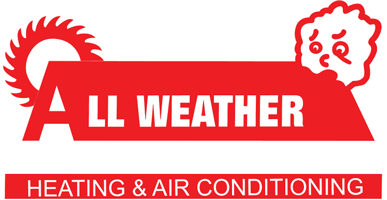
If you’re unsure whether your Huntsville residence has bad indoor air quality (IAQ), it probably does.
We are indoors a lot. In fact, we’re inside up to 90% of the time, according to the U.S. Environmental Protection Agency. And the air inside houses could be 2–5 times more contaminated than outdoors, which may create long-term health problems.
Most Common Origins of Unsatisfactory IAQ
We’ve made a list of the most frequent origins of poor IAQ, the issues they create and how you can take care of these indoor air pollutants. If you’re worried about the air inside your residence, we advise talking with a specialist like All Weather Heating & Air Conditioning Inc about which solutions are ideal for your house.
Volatile Organic Compounds
Volatile organic compounds, or VOCs, are vapors released by regular household things.
They’re found in paint and stains in addition to:
- Furniture
- Carpet
- Building materials
- Cleaning products
- Cosmetics
- Air fresheners
- Candles
When these fumes accumulate inside, they can irritate your eyes, nose and throat. They might also cause headaches and nausea. Regardless of whether your residence is in a rural or industrial location, an EPA study found indoor levels of these pollutants can be 2–5 times higher than the air outside your home.
Always use the manufacturer’s guidelines when applying paint or spraying cleaning products. Unlatching a window can help vapors disappear faster.
Air purification systems can also help. This system partners with your heating and cooling unit to enhance indoor air. When seeking a system, ensure it’s specifically designed to wipe out VOCs.
Dust and Pet Dander
Dust and pet dander can aggravate health problems like asthma and allergies, especially when it continually gets recirculated by your residence’s comfort equipment. While you can vacuum more routinely and get an improved air filter, an air filtration system might be a better fit.
This solution hooks to your comfort equipment to give strong filtration. Some models offer hospital-level filtration for removing particles and bioaerosols.
Persistent Odors
New residences are tightly sealed to enhance energy efficiency. While this is great for your heating and cooling costs, it’s not so good for your IAQ.
Stale odors can stick around for a greater amount of time as your home is pulling in reduced fresh air. Since keeping your windows open throughout the year isn’t an option, here are two methods you can make your indoor air smell cleaner.
An air purification system is placed in your HVAC system to wipe out odors before they recirculate. Find one with a carbon filter and the power to break down dangerous VOCs. These units can also help keep your loved ones healthy by getting rid of most bacteria and common allergy triggers like pollen and mold spores.
A ventilation system removes stuffy indoor air and exchanges it with crisp outdoor air. There are two models of systems (heat recovery and energy recovery), so check with our professionals for more information on which type is right for your home.
Unsteady Humidity
It’s critical your house’s humidity keeps even. Air that has too much moisture can lead to mold, while dry air can create respiratory issues.
Our professionals suggest 40–50% for the best comfort. To keep yours steady, consider getting a whole-home humidifier or whole-home dehumidifier with your HVAC unit.
In place of having to lug a humidifier from room to room, this product delivers even humidity across your house.
Carbon Monoxide
Carbon monoxide is colorless gas you can’t smell. It’s a byproduct of insufficient combustion in fuel-burning units, like gas heating systems, water heaters or fireplaces.
It causes a severe health risk. In small levels, it can lead to flu-like sickness like headaches and nausea. It could be lethal in big concentrations.
We advise regular furnace maintenance to make sure your unit is working smoothly. This service allows our specialists to pinpoint issues before they start, including malfunctions that can cause carbon monoxide leaks.
The best way to keep your home free of carbon monoxide is to get detectors. These alarms must be on each floor close to bedrooms and living rooms.
Improve Your House’s Air Quality with the All Weather Heating & Air Conditioning Inc Specialists
Informed that your home has poor air quality but not sure how to improve it? Or unsure which solution is right for you? Give our kind HVAC pros a call at 256-801-4701 or contact us online now. With free estimates and expert service, we’ll help you find the right option for your needs and budget.
